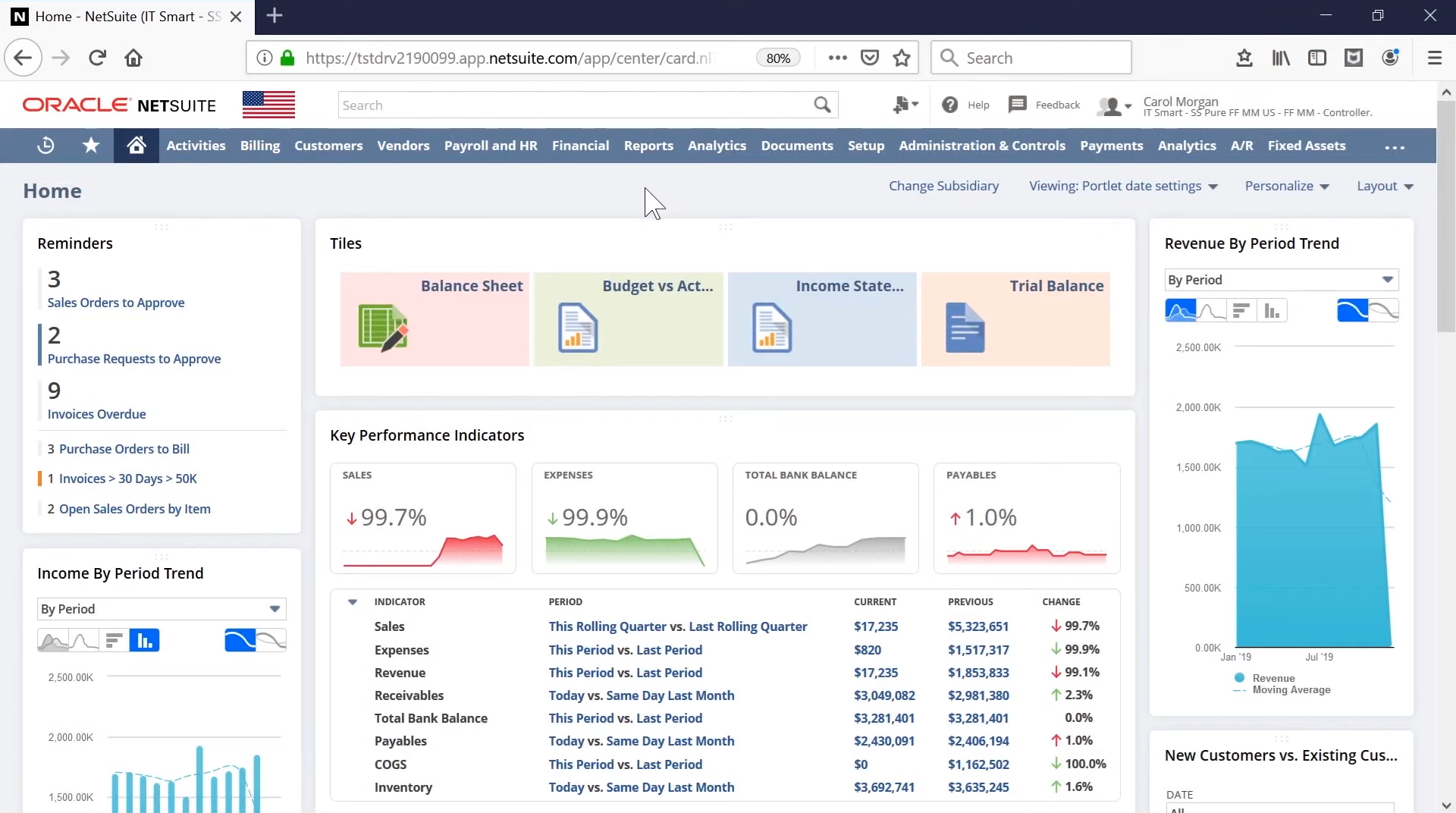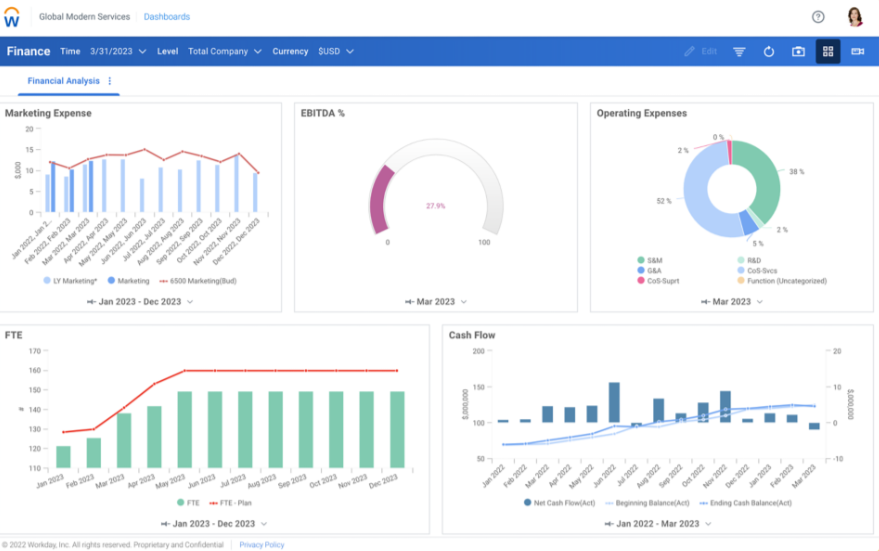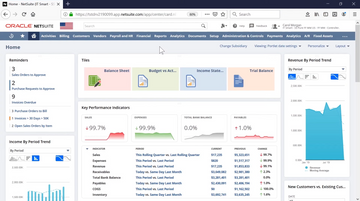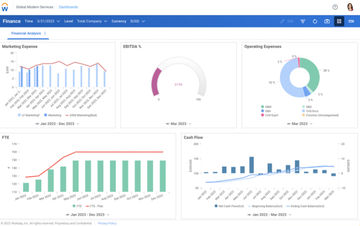NetSuite ERP vs. Workday


Workday is a web-based enterprise software that offers financial and human capital management solutions for various industries. The platform boasts unified finance and HR functionalities, bringing real-time insights and auditable process management via a modern SaaS model.
Workday stands out for its integrations with over 600 third-party tools, in-depth people analytics, and AI-driven employee engagement and skills management. It features the Workday Peakon Employee Voice, an AI-based tool for employee engagement, and the Workday Skills Cloud for AI-based hiring and employee development. It also includes mobile apps for employee self-service, such as timekeeping and viewing benefits.
-
Price Range
$ $ $ $ $$ $ $ $ $
- Starting Price $1,428/month
- Client OS Web
-
Price Range
$ $ $ $ $$ $ $ $ $
- Starting Price $45/employee/month
- Client OS Web
Our editorial review staff has had hands-on experience with two significant ERP solutions: NetSuite ERP and Workday. In this comparison, we’ll highlight the strengths and weaknesses of each platform, and identify which is the best fit for most businesses.
NetSuite ERP Overview
NetSuite ERP is a multi-tenant ERP software supports a wide range of business needs, including finance, operations, sales, service, and HR. NetSuite is designed for small businesses, mid-market companies, and even large enterprises.
Our editorial team found NetSuite’s accounting and supply chain management capabilities useful. We also liked its out-of-the-box functionality, cloud-native design, and the seamless integration with eCommerce platforms and point-of-sale apps. However, NetSuite may not be the best choice for startups or businesses that require field service management or heavy manufacturing support due to its complexity.
Workday ERP Overview
Workday, on the other hand, is a web-based enterprise software offering comprehensive financial and human capital management solutions. Workday is best suited for large companies that operate across multiple regions or entities.
Our team was impressed with Workday’s comprehensive human capital management tools and user-friendly interface. The platform offers extensive customization and integrates well with third-party apps, making it a solid choice for midsize to large firms. However, Workday does not offer a free version or transparent pricing, which could be a deterrent for some businesses.
NetSuite vs Workday: Which is Better for Most Businesses?
For most businesses, we recommend NetSuite ERP. While both platforms offer comprehensive ERP solutions, NetSuite’s strength lies in its robust accounting and supply chain management capabilities and a wide range of third-party integrations. Additionally, NetSuite’s price point is typically more attractive to small and midsize businesses compared to Workday.
However, if your company places a significant emphasis on human capital management, and you operate a large enterprise with complex operations, Workday might be a better fit. Just keep in mind that pricing details aren’t readily available and there’s no free version or trial to test the waters.
For a broader scope of ERP software options, check out our roundup of the best ERP software.



